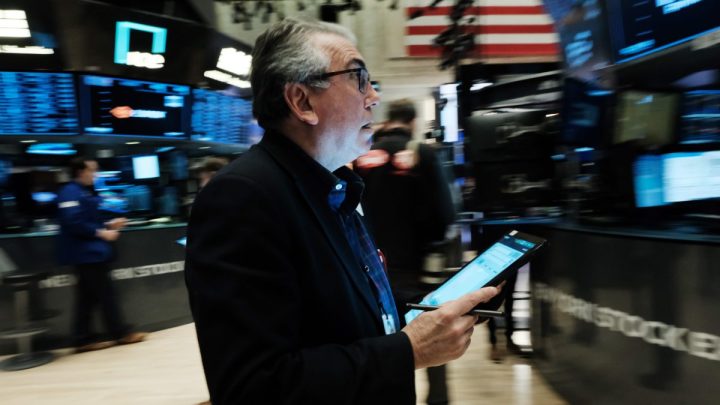
The markets are taking debt limit uncertainty in stride — for now
The markets are taking debt limit uncertainty in stride — for now

President Joe Biden met with House Speaker Kevin McCarthy to discuss lifting the debt limit on Tuesday. If no agreement is reached, the Treasury Department says the government could default as soon as June 1 — just three weeks from now.
That’s a possibility that, as Federal Reserve Chair Jay Powell said the other day, we “shouldn’t even be talking about.”
But so far, markets have been taking all this uncertainty over the debt limit in stride. After all, stock markets aren’t exactly surprised by the back-and-forth over the debt limit.
“We know the drill, they’ve just gotta solve for it,” said Mark Luschini, chief investment strategist at Janney Montgomery Scott.
There are plenty of reasons to believe that Congress will sort things out, he said. For one, there are a lot of people who won’t be happy if government aid stops flowing.
“On June 2, about $25 billion of payments are estimated to go out to Medicare, Medicaid and Social Security recipients,” Luschini said. He gives it about a week or two before the pressure on Congress starts really ramping up.
And right now, markets don’t have anything to react to since nothing’s really happening, said Ian Dew-Becker, a finance professor at Northwestern University.
“And when nothing is happening, we shouldn’t be surprised that the market is just puttering along as it usually does,” he said.
The market could react if, say, Treasury Secretary Janet Yellen comes out with more details on who wouldn’t get paid in the event of a default, Dew-Becker said.
And if nothing keeps happening, that’s news too, he said.
“You might expect that returns are just kind of a little negative every day or a little lower than they would be otherwise, because every day of no news, that’s kind of bad news.”
There are some markets that have already started to react. Just look at one-month Treasury bills, said Winnie Cisar, global head of strategy at CreditSights. They’re going to mature right when the government could default.
Investors are worried those bonds won’t pay out, Cisar said. As a result, they’re demanding to be paid more in interest.
“Investors are looking over that one-month time horizon, and saying, ‘Hey, we need a little something extra to compensate us for that extra risk,'” she said.
The corporate bond market could start to react too, in large part because a government default could mean less government spending and a weaker economy, Cisar said.
“That factors into the outlook for earnings going forward and the ability for corporate issuers to borrow at a reasonable rate.”
Investors across the board will reassess how cautious they need to be depending on how things play out this week, she added.
There’s a lot happening in the world. Through it all, Marketplace is here for you.
You rely on Marketplace to break down the world’s events and tell you how it affects you in a fact-based, approachable way. We rely on your financial support to keep making that possible.
Your donation today powers the independent journalism that you rely on. For just $5/month, you can help sustain Marketplace so we can keep reporting on the things that matter to you.


















